The Weiss Watch Company: An American Watchmaking Revival
- Balance & Bridge

- Oct 20, 2023
- 6 min read

In this Brand Deep Dive, we'll be focusing on American Watchmaker Cameron Weiss and the company he founded in 2013 with his wife Whitney, the Weiss Watch Company. We will take a look at the importance of Weiss, and how Cameron is staging a true revival of American artisanship and craftsmanship. Grab your preferred American craft, and enjoy.
Select for Quick Navigation:
American Manufacturing - A Rich History

American artisanship and manufacturing are a testament to the nation's remarkable journey from humble beginnings to becoming an industrial powerhouse. The beginnings came in the late 18th century when Samuel Slater, often referred to as the "Father of American Industry," established the first textile mill in Pawtucket, Rhode Island, marking the inception of mechanized production in the United States. This pivotal moment kick-started the Industrial Revolution on American soil.
Throughout the 19th century, manufacturing underwent rapid expansion across various sectors, including textiles, steel, and transportation. Eli Whitney's invention of the cotton gin in 1798 revolutionized cotton production, while significant infrastructural developments, such as the construction of the Erie Canal in the 1820s, facilitated the movement of goods and raw materials, propelling industrial growth.
The impact of the Civil War led to the establishment of numerous factories, primarily for wartime production, further driving the growth of manufacturing facilities and standardizing production processes.
However, as the Eastern world developed alongside America, so did the increased costs of goods and material imports. After WWII the wartime recovery efforts around the globe took center stage and ushered in a new approach to manufacturing.
Outsourcing of American Manufacturing

The eventual outsourcing of production overseas is a significant chapter in the story of American manufacturing. In the latter part of the 20th century, American companies began seeking cost-efficiency by moving their production processes to countries with lower labor costs and fewer regulations. This shift aimed to remain competitive and reduce operational expenses. Countries like China, India, and Mexico became popular destinations for offshoring.
The impact of outsourcing was profound, leading to a significant transformation of the American industrial landscape. While it allowed companies to cut costs, it also raised concerns about job losses and the weakening of domestic industries. The outsourcing trend affected a wide range of sectors, from textiles and electronics to customer service and manufacturing, and continues to be a subject of debate regarding its long-term economic and societal implications. This historical development remains an important and complex aspect of the modern American economic landscape.
History of American Watchmaking

Not immune to the trends of American industry, the history of watchmaking in America took similar turns, though the overall story is a narrative of craftsmanship, innovation, and industrial progress. It began in the early 19th century when skilled watchmakers started producing high-quality timepieces on American soil. Notable American brands like Hamilton and Elgin soon emerged, gaining worldwide recognition for their precision and craftsmanship.
During this golden era of American watchmaking, innovations, and advancements led to the production of exquisite pocket watches that became coveted symbols of excellence. American watchmakers were known for their commitment to quality and intricate designs, setting high standards in the industry.
This period witnessed the development of intricate mechanisms, such as the lever escapement, which contributed to the accuracy and reliability of American watches. As American watchmaking continued to flourish, it reinforced the nation's reputation for craftsmanship and innovation.
Outsourcing of American Watchmaking

The outsourcing of American watchmaking to primarily Switzerland and Japan in the 20th century marked a pivotal moment in horological history. These countries, renowned for their precision and craftsmanship, emerged as global leaders in the watchmaking industry.
Switzerland, in particular, became synonymous with luxury timepieces, thanks to its deep-rooted horological traditions. The Swiss watchmaking industry boasted a heritage dating back centuries, with famed brands like Rolex, Patek Philippe, and Omega setting the standard for accuracy and craftsmanship. The Swiss leveraged their expertise to create the world's finest mechanical watches.
Japan, on the other hand, rose to prominence with the introduction of quartz technology. Brands like Seiko and Citizen were pioneers in this field, developing quartz movements that revolutionized watch accuracy. Japan's innovation and attention to detail propelled it to a position of dominance in the global market.
Many of the world's largest brands, even those outside of Japan and Switzerland depend on parts and movements from these countries. ETA, Miyota, Sellita, Ronda, Vaucher, and Seiko are some mainstays in this category of movement purveyors. Many watchmakers do not make any additional efforts to tune, decorate or individualize any of these movements for their brands use.
The outsourcing of American watchmaking to Switzerland and Japan posed significant challenges for American watchmakers, as these countries' reputations for excellence cast a long shadow. This era is a testament to the competitive nature of the watchmaking industry and the enduring allure of Swiss and Japanese timepieces.
Resurgence of American Watchmaking and Manufacturing

The revival of American manufacturing and watchmaking is a compelling resurgence of craftsmanship, innovation, and national pride. In recent years, entrepreneurs and companies have rekindled the spirit of American manufacturing, breathing new life into the industry.
In the realm of watchmaking, American brands are making a notable comeback. They pay homage to the nation's heritage while embracing cutting-edge technology. These modern American watchmakers create timepieces that reflect both tradition and innovation, offering unique designs and impeccable precision. Their dedication to local sourcing and manufacturing is a testament to their commitment to revitalizing the industry.
Furthermore, the revival extends beyond watchmaking. American manufacturing, as a whole, is experiencing a renaissance. Companies are increasingly embracing advanced technologies, automation, and sustainable practices. This resurgence showcases the resilience of American industries, proving that it's never too late to rekindle the spirit of craftsmanship and innovation on home soil. It's a promising story of adaptation and growth in an ever-changing global landscape.
With excitement brewing about the return to American manufacturing, many of America's brands are still using a majority of outsourced parts and manufactured movements.
Enter Weiss Watch Company
Weiss Watch Company -Leading the American Horological Revival

At the heart of this resurgence is the Weiss Watch Company, an exemplar of American dedication and ingenuity. Established in 2013 in sunny Southern California, it has grown to become the largest mechanical watchmaking company in the United States, an extraordinary feat considering it's a one-man operation. Founder Cameron Weiss, a Swiss-trained, certified master watchmaker, is the guiding force behind the brand, personally crafting every watch by hand from start to finish. Each watch takes a minimum of 60 hours to craft. A true dedication to the art.
What sets Weiss apart is its relentless commitment to preserving the timeless techniques of watchmaking while integrating modern technology to create timepieces that epitomize both style and longevity.
Weiss underwent a transformation when Cameron and his family relocated to the vibrant city of Nashville in 2020. Nashville's creative culture and the family's desire for personal change beckoned them. Today, Weiss operates from a repurposed record label printing shop in the thriving neighborhood of Wedgewood-Houston, known for its abundance of recording studios and galleries.

A graduate of the Nicolas G. Hayek Watchmaking School in Miami, Cameron honed his craft with prestigious Swiss watch companies Audemars Piguet and Vacheron Constantin before embarking on the journey of founding Weiss, alongside his wife, Whitney.
Now, Weiss watches are available on the company website and in select locations such as Stag in Texas, OK in LA and Japan, and select Faherty stores.
Weiss has garnered a dedicated following of collectors, including notable figures like Bob Weir and country musician Chase Rice, with whom Cameron recently collaborated on a limited edition watch released on Feb. 23 2023. Unique partnerships symbolize Weiss' dedication to honoring tradition while embracing the future of American culture.
Not only does Weiss offer a core collection of various models and limited runs within each model, Cameron offers something unique on the Weiss shop. For only $10 you and a friend can tour the Weiss workshop and get a firsthand look at the process of creating a Weiss watch.
Three Variations of the Weiss 42mm Standard Issue Field Watch - Images Courtesy of Weiss
On the first Thursday of the month, Weiss will host you and a guest inside of their workshop at 2pm. Cameron himself will provide a tour to show you how each Weiss Watch Company timepiece is made inside their Nashville workshop. Weiss will release three openings a month to host six guests in total for an exclusive look at how a watch is made. This is an unheard of level of transparency in an industry that holds many processes and proclamations as secrets. We applaud Cameron for this and believe it speaks to a greater mission guiding Cameron and Whitney.
With Cameron at the helm of Weiss and the greater revival of American Watchmaking, the future looks promising. His dedication to not only his craft, but to bringing awareness to the greater watch community has been a blessing to an industry seeking a breath of fresh air.
Leadership and innovation comes in many forms from many places, and we're excited to see where Weiss takes us.
Enjoy browsing the Weiss Website below - in the meantime, we are headed to Nashville.
We will be compiling deep dives on each Model from the Weiss collection soon. For now please enjoy some of Cameron's and Weiss Watch Company's artistry in the below gallery.
*All of the images below were provided courtesy of Weiss Watch Company*
A special thank you to the Weiss Watch Company team for Images and Information featured in this article.
Balance & Bridge
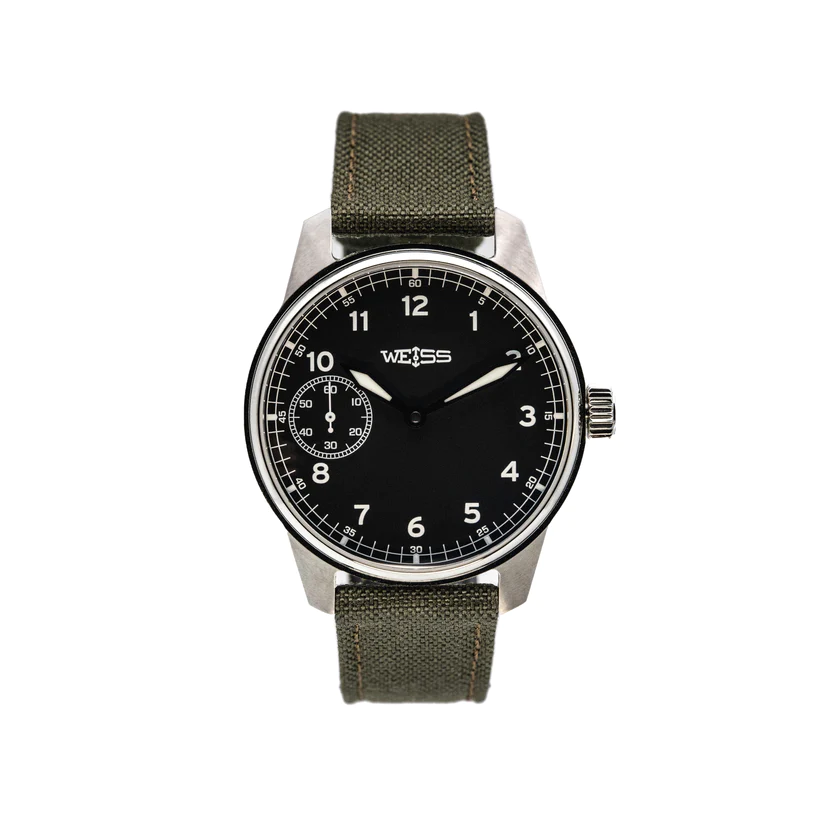
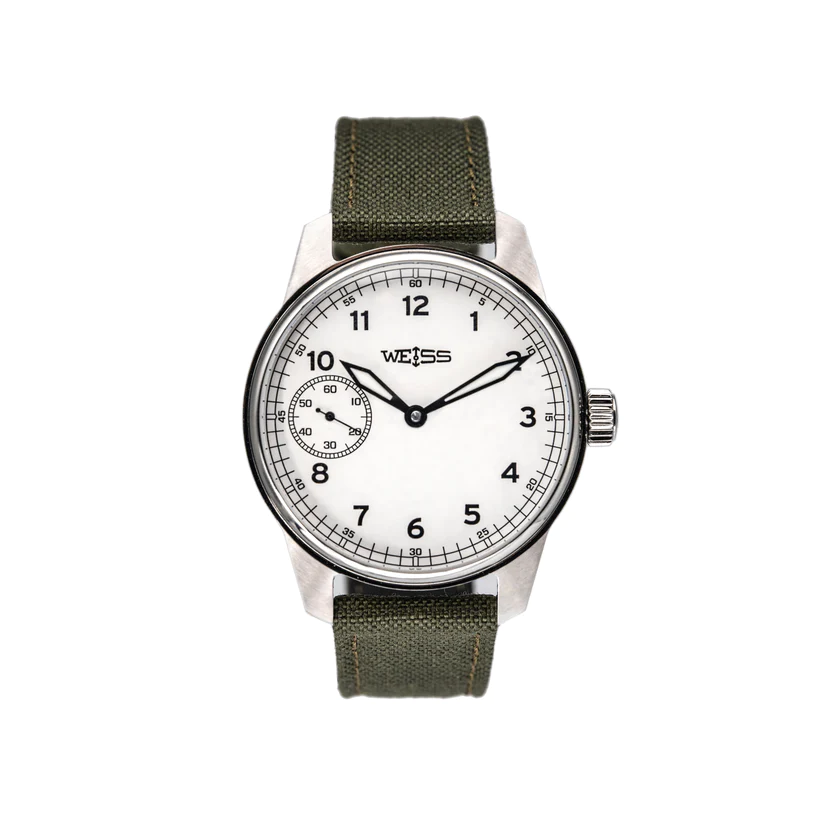
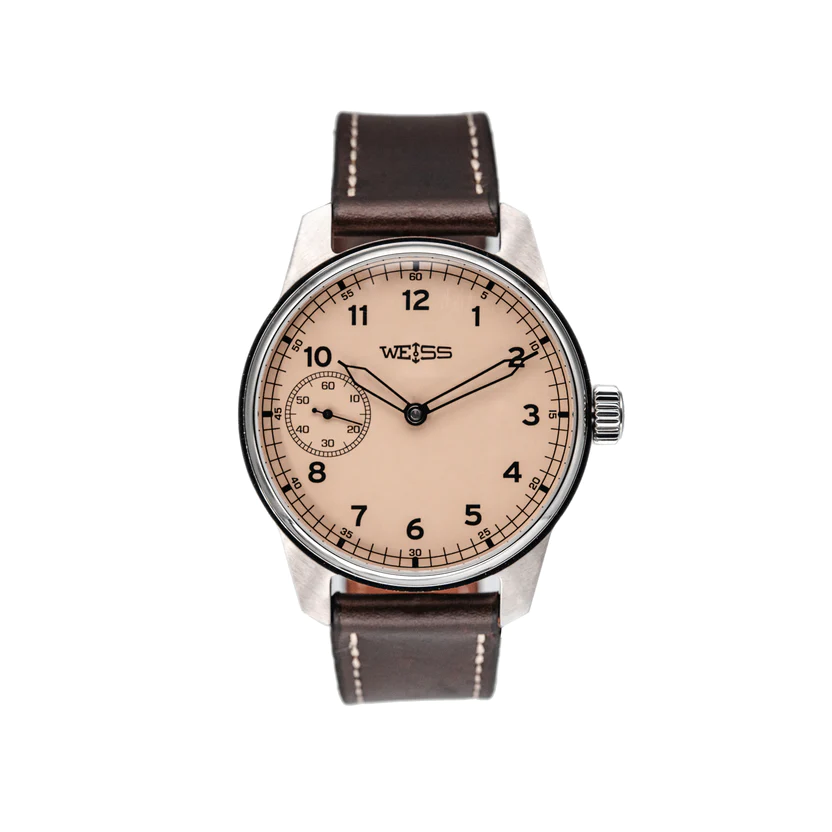


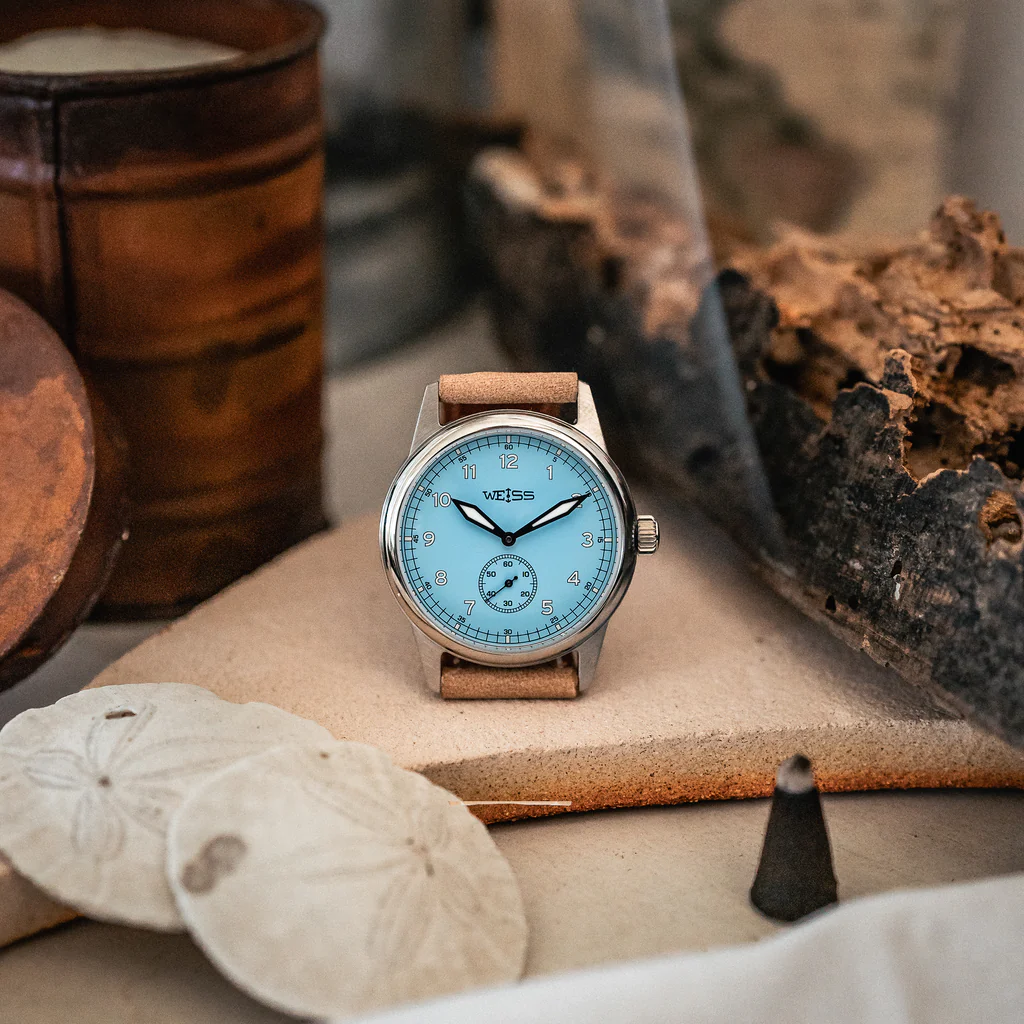
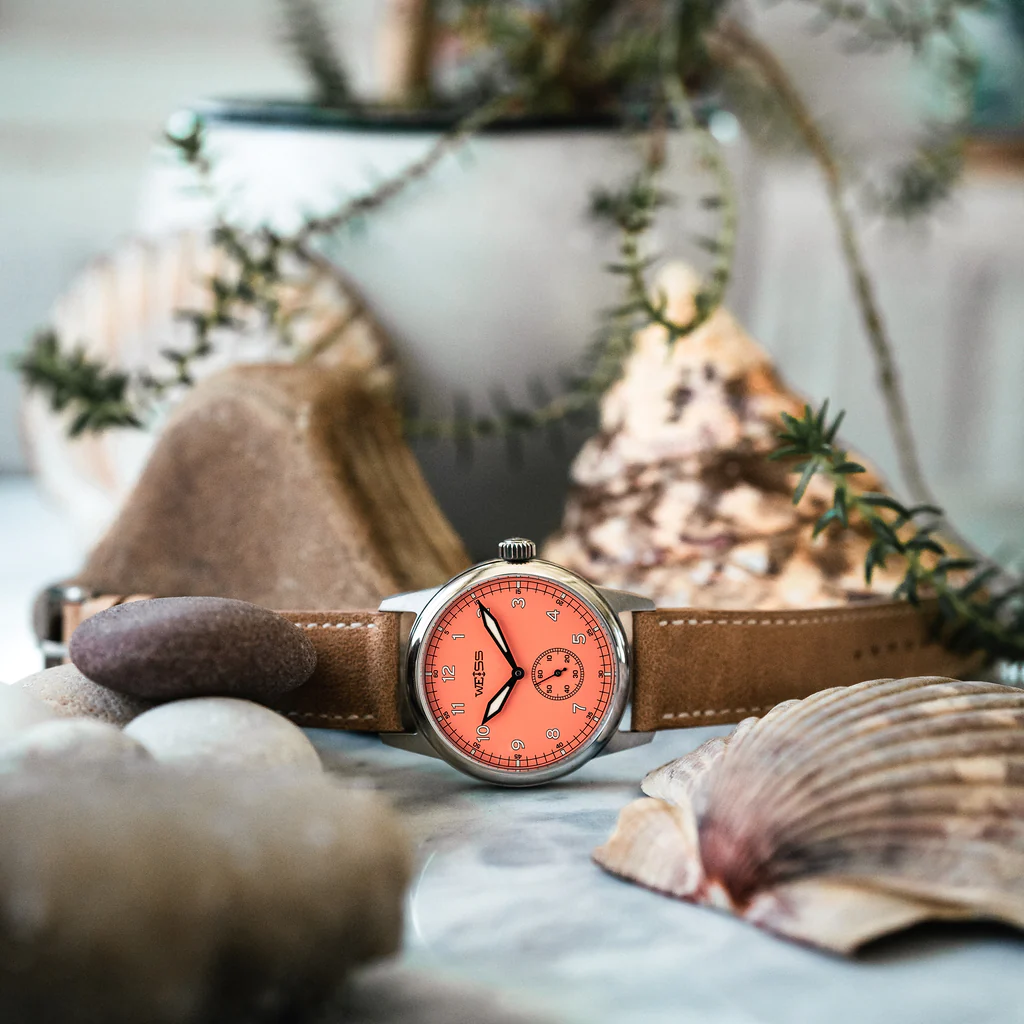


Comments